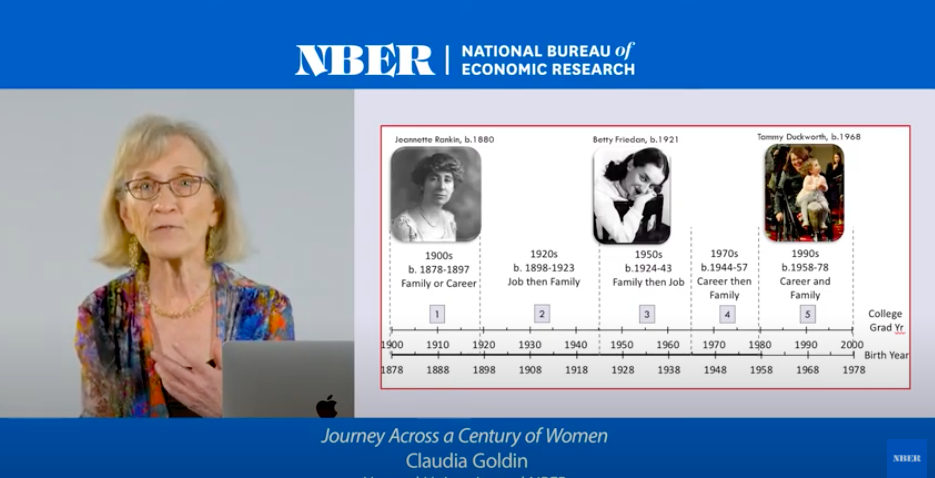Guest post by Jeff Mosenkis of Innovations for Poverty Action Claudia Goldin charts a century of women in the workforce I’ve heard these days in medicine there’s a glut of papers that are all essentially “[thing I was doing already] + in the time of COVID,” which seems like is true of all fields now. The German Development Institute for Evaluation (DEval) has a helpful roundup of several useful new hubs for evidence, research, and methodology resources for dev/social science. A few weeks ago I saw someone say something like “good thing economics is so status driven and hierarchical, at least someone gets to publish nulls.” Heres’s a nice thread of responses to Pia Raffler’s request for resources on showing (and publishing) null results. Stefano DellaVigna and Elizabeth Linos compare the
Topics:
Jeff Mosenkis (IPA) considers the following as important: anti-trust, forecasting, links, miscellany, news, nudges, podcast, prediction, regualation, Research
This could be interesting, too:
Robert Skidelsky writes Speech in the House of Lords – Conduct Committee
Peter Radford writes My Father’s Disgust
Dean Baker writes The elites’ big lie on inequality
Lars Pålsson Syll writes Best advice to an aspiring economist — don’t be an economist!
Guest post by Jeff Mosenkis of Innovations for Poverty Action

Claudia Goldin charts a century of women in the workforce
- I’ve heard these days in medicine there’s a glut of papers that are all essentially “[thing I was doing already] + in the time of COVID,” which seems like is true of all fields now. The German Development Institute for Evaluation (DEval) has a helpful roundup of several useful new hubs for evidence, research, and methodology resources for dev/social science.
- A few weeks ago I saw someone say something like “good thing economics is so status driven and hierarchical, at least someone gets to publish nulls.” Heres’s a nice thread of responses to Pia Raffler’s request for resources on showing (and publishing) null results.
- Stefano DellaVigna and Elizabeth Linos compare the size of effects in academic trials of nudges, to 126 RCTs conducted by Nudge Unit trials in the practical world:
“In papers published in academic journals, the average impact of a nudge is very large – an 8.7 percentage point take-up effect, a 33.5% increase over the average control. In the Nudge Unit trials, the average impact is still sizable and highly statistically significant, but smaller at 1.4 percentage points, an 8.1% increase.”
They find publication bias and statistical power account for the difference (perhaps some nudge researchers can read the responses above for how to publish disappointing findings). Then using forecasts, they find academics overestimate the effects an intervention will have, while Nudge Unit practitioners are accurate.
- How are you at forecasting? A new prediction platform spearheaded by DellaVigna and Eva Vivalt lets anybody sign up to predict the outcomes of several trials.
- This is why we can’t have nice (or cheaper) things. The Times has an exposé of an institute at George Mason Law School funded by big tech companies who happen to be under regulatory scrutiny (h/t Florian Ederer.) The institute they fund trains regulators in the school of economic thought that the best kind of regulation is as little as possible. It follows the model of a judge training institute that does the same thing, and has been shown to influences judges to rule in favor of mergers. Planet Money had a couple of really good episodes explaining why, for example, we have only a few big telecom companies. It comes back to Robert Bork (Apple) taking an econ class at UChicago in the 70’s when he was in law school, and writing a book for the law field explaining that economics says to leave markets alone. There’s another good episode (Apple) on what this means for the big tech companies today like Google and Facebook. In summary, your cable and cell phone bills are so high because a dude took an econ class in the 70’s, and that’s the butterfly effect.
- For a counterexample, see Michael Lewis’ podcast episode “Baby Judge School,” which trains judges to be aware of their own biases and how to counteract them more effectively (Apple).
- An uncomfortable truth is that academics are big polluters, through conferences and other kinds of travel, but many of us are figuring out how to accomplish similar academic events without the travel these days. Here’s a really interesting article on how to de-carbonize conference travel, through simple things like holding them in more central locations, and having simultaneous regional hub meetings that connect to one another digitally. One crazy statistic, they calculated the carbon from travel for one major scientific conference and found on average it was “about 3 tonnes per scientist, or the average weekly emissions of the city of Edinburgh, UK.”
- Happily the NBER Summer Institute this week was online and therefore open to far more people. Claudia Goldin gives the Martin Feldstein lecture at NBER Summer Institute on women’s career progress over a century. “Tammy Duckworth is the first senator … to bring a baby into an active session of Congress, though many would say there have been babies in Congress before that time”
